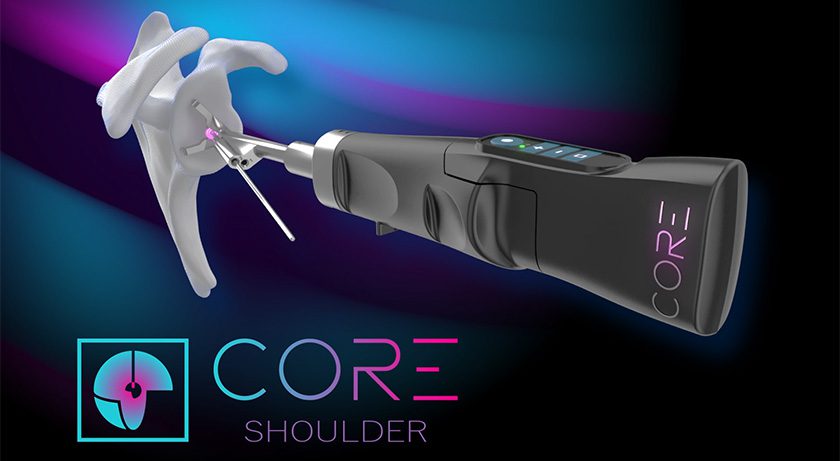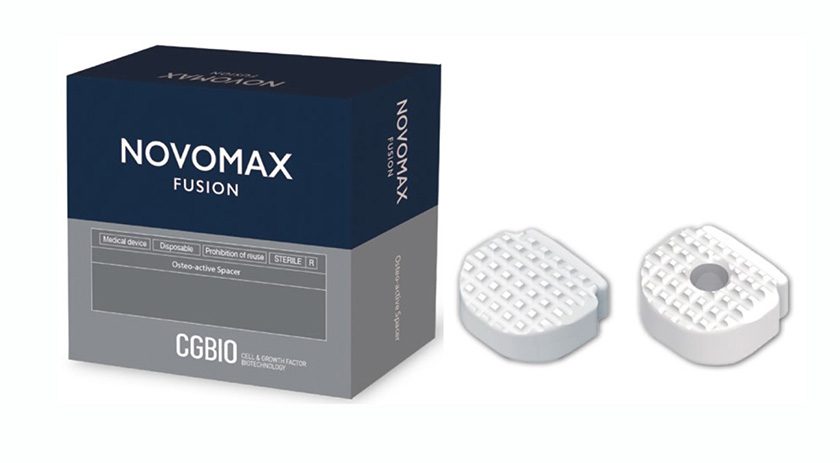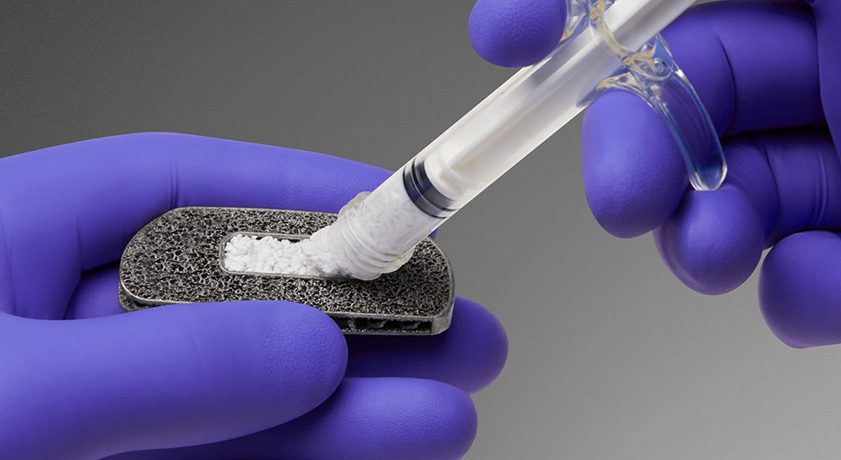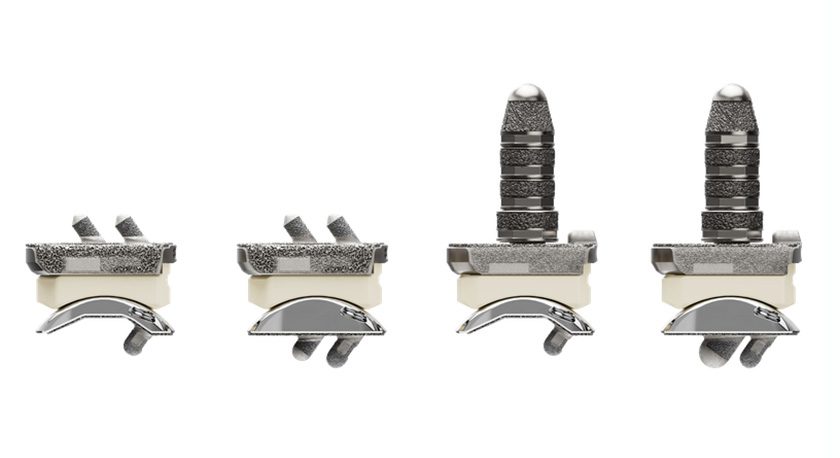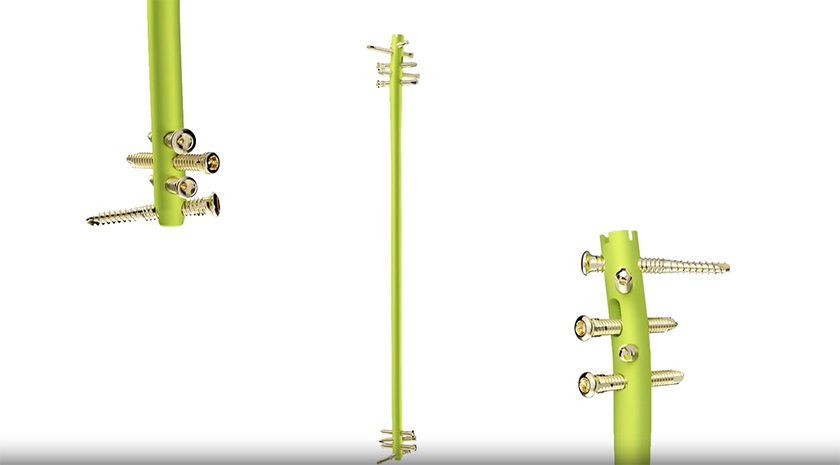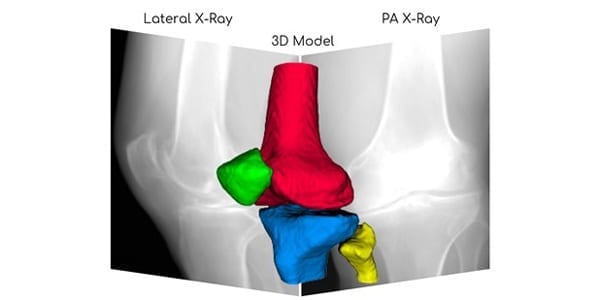

 Copy to clipboard
Copy to clipboard 
RSIP Vision introduced an artificial intelligence (AI)-based solution for 3D reconstruction of knees from x-ray images. The technology provides rich 3D modelling of each bone that can yield critical data for surgical planning and implant fitting, without disrupting the surgeon’s workflow or requiring high-cost, high-radiation methods. Widely available, x-ray scanners are more economical than CT or MRI machines, and expose patients to much less radiation.
RSIP Vision generates a 3D model of the joint from two X-ray images of anteroposterior and lateral views. The model is based on convolutional neural networks and employs a distinctive dimensional enlargement layer. Testing indicates that the accuracy of the technology is close to 1mm, which is the required precision needed for best fit of the implant in total knee replacement.
This widens the company’s range of tools, joining its previous launches of technology for the shoulder and hip.
Dr. Rabeeh Fares, Radiologist at the Sourasky Medical Center in Tel Aviv, said, “Knee replacement surgeries are common, among other joint surgeries. The most important factor for achieving high accuracy and success rates is preoperative planning, during which the orthopedic surgeon normally uses an expensive, time consuming, scarcely available modalities (CT, MRI…). To overcome this obstacle, RSIP Vision developed a new technology based solely on x-ray beams that is readily available, accurate, cheap and reproducible, which could be applied in poor peripheral as in rich central areas, while preserving the segmentation quality.”
RSIP Vision introduced an artificial intelligence (AI)-based solution for 3D reconstruction of knees from x-ray images. The technology provides rich 3D modelling of each bone that can yield critical data for surgical planning and implant fitting, without disrupting the surgeon's workflow or requiring high-cost, high-radiation methods. Widely...
RSIP Vision introduced an artificial intelligence (AI)-based solution for 3D reconstruction of knees from x-ray images. The technology provides rich 3D modelling of each bone that can yield critical data for surgical planning and implant fitting, without disrupting the surgeon’s workflow or requiring high-cost, high-radiation methods. Widely available, x-ray scanners are more economical than CT or MRI machines, and expose patients to much less radiation.
RSIP Vision generates a 3D model of the joint from two X-ray images of anteroposterior and lateral views. The model is based on convolutional neural networks and employs a distinctive dimensional enlargement layer. Testing indicates that the accuracy of the technology is close to 1mm, which is the required precision needed for best fit of the implant in total knee replacement.
This widens the company’s range of tools, joining its previous launches of technology for the shoulder and hip.
Dr. Rabeeh Fares, Radiologist at the Sourasky Medical Center in Tel Aviv, said, “Knee replacement surgeries are common, among other joint surgeries. The most important factor for achieving high accuracy and success rates is preoperative planning, during which the orthopedic surgeon normally uses an expensive, time consuming, scarcely available modalities (CT, MRI…). To overcome this obstacle, RSIP Vision developed a new technology based solely on x-ray beams that is readily available, accurate, cheap and reproducible, which could be applied in poor peripheral as in rich central areas, while preserving the segmentation quality.”

You are out of free articles for this month
Subscribe as a Guest for $0 and unlock a total of 5 articles per month.
You are out of five articles for this month
Subscribe as an Executive Member for access to unlimited articles, THE ORTHOPAEDIC INDUSTRY ANNUAL REPORT and more.
JV
Julie Vetalice is ORTHOWORLD's Editorial Assistant. She has covered the orthopedic industry for over 20 years, having joined the company in 1999.


